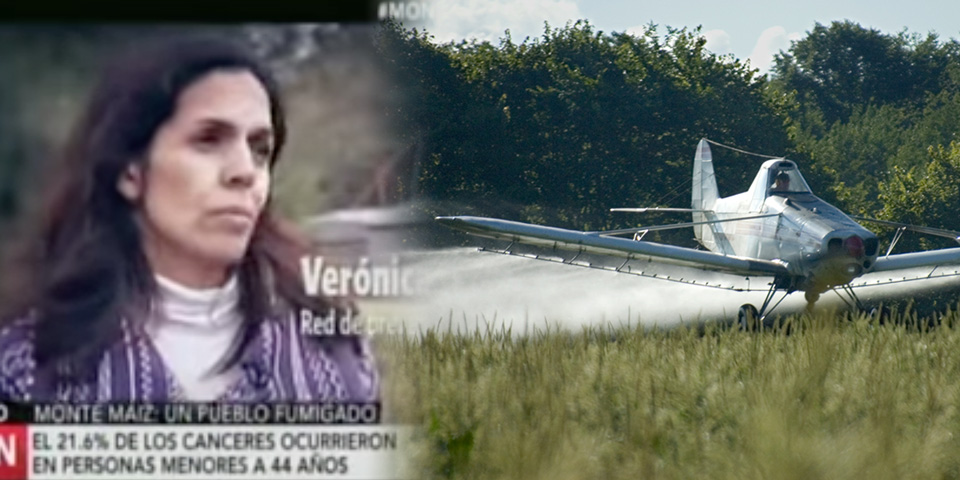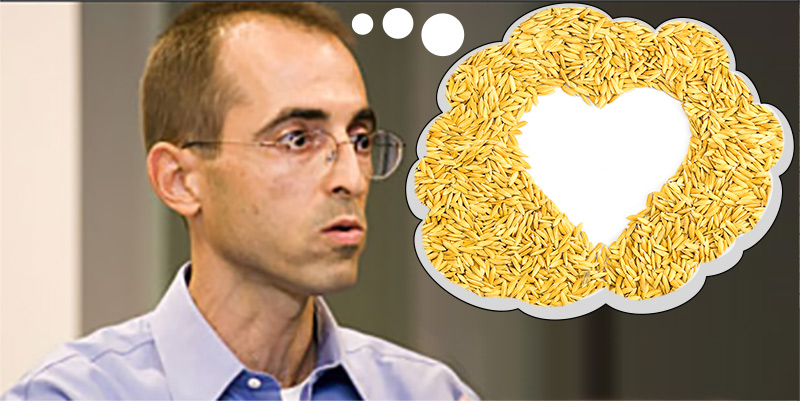Argentine town puts the brake on pesticides
The Council of the Argentine town of Monte Maiz has unanimously approved an ordinance that sets limits on the spraying of pesticides and bans the storage of agrochemicals in the town. The town is in a region that grows GM herbicide-tolerant soy and maize, which is sprayed liberally with Roundup and other herbicides
Argentina: Federal judge accepts environmental lawsuit against GMOs
A federal judge in Argentina has ruled that an unprecedented class action lawsuit, demanding a ban on the release of GMOs and their associated pesticides, can proceed.
US urgent action: Stop the DARK Act!
The House of Representatives will vote any day now on the DARK (Denying Americans the Right to Know) Act, which would forbid states to label and regulate GM foods. Act now – tell your Rep to vote NO on HR 1599!
Non-GM soy more sustainable than GM – study
A new study shows that the Brazilian non-GMO soybean meal supply chain is more sustainable than the GMO soybean chain. Lower pesticide use and higher price premiums mean non-GM soy is better for farmers and the environment.
No scientific evidence of GM food safety
It is “premature” to declare GM foods safe due to “incomplete” scientific knowledge, finds report commissioned by Norwegian Environment Agency..
New Séralini study showing contamination of lab rat feeds published
A new study that found that laboratory rodent feeds are highly contaminated with pesticides, toxic metals, PCBs, and GMOs, has been published by the journal PLOS ONE.
Glyphosate damages DNA, says World Health Organisation expert
Glyphosate is “definitely genotoxic”, says Prof Chris Portier, a co-author of the report by the World Health Organisation’s cancer agency, which classed glyphosate as a probable carcinogen.
Another GMO-related herbicide linked to cancer
Just months after a group of scientists convened by the World Health Organization’s cancer agency IARC decided glyphosate was a “probable” carcinogen, a group convened by the same organisation has decided that 2,4-D is a ”possible carcinogen”. 2,4-D is the GMO industry’s herbicide of choice to kill glyphosate-resistant weeds, and new GMOs have been engineered to tolerate it, as well as glyphosate. So people who eat GMOs will be eating a probable carcinogen and a possible carcinogen!
Monsanto hires industry consultancy firm to review WHO verdict on glyphosate
Monsanto has commissioned an industry consultancy firm to review the report of the World Health Organisation’s cancer agency IARC, which said glyphosate is a probable carcinogen. The firm has history of defending glyphosate using dubious arguments.
Battle rages in Colombia over glyphosate ban
Glyphosate aerial spraying on illegal coca crops is expected to be banned in Colombia, but the story is not so simple as was reported and the government is already looking at “other products” to replace glyphosate.
Glyphosate found in German breast milk
Glyphosate has been found in German women’s breast milk at levels above that allowed in drinking water in the EU.
EFSA should recognize that universities are commercial entities – Ombudsman
The European Ombudsman has ruled that the European Food Safety Authority (EFSA) must no longer assume that universities are independent when choosing members of its expert panels. The Ombudsman recognises that universities are developing closer ties with industry and becoming commercial entities.
GMO aphid-repellent wheat trial a £1 million failure
Rothamsted Research in the UK wasted £1 million of taxpayers’ money on a failed GMO wheat trial. The researchers described the results of the trial as “disappointing”. Meanwhile an agroecological non-GMO way of combating aphids in wheat was shown to work as long ago as the mid-1990s.
EU Commission to stop uncontrolled release of Cibus’s GM oilseed rape
Good news from Brussels: Cibus’s GM oilseed rape will not escape European GMO regulation and labelling.
Semantically engineered crops
GMO companies are experimenting with new genetic engineering techniques called “New Plant Breeding Techniques” – but their claims of precision and predictability are false.
European public misled over cisgenesis
The European public looks more favorably on cisgenesis, in which the genes of interest are taken from a closely related species or the same species, than transgenesis, in which genes from other species are used, according to a Eurobarometer survey. However, this is because the Eurobarometer survey failed to tell the whole truth about cisgenesis.
Lamb with jellyfish gene “may have been deliberately sent to abattoir”
Lamb genetically modified with jellyfish protein may have been sent from Paris lab to abattoir after a dispute between researchers – and ended up on someone’s plate.
GMO ban struck down in Maui, Hawaii
Campaigners who celebrated when the moratorium on GMO planting in Maui passed in November are now vowing to keep fighting after a judge invalidated the ban. The ruling means the county law does not supersede state and federal laws that allow GM crops.
US: Neil Young supports Vermont’s GMO labelling law
Rocker Neil Young has donated $100,000 to a fund devoted to defending Vermont's GMO labelling law from legal challenges.
US: Senate bill would label GM salmon
Retailers would have to identify transgenic salmon as genetically engineered under a bill approved by the Senate Appropriations Committee.
GMO-free Chipotle considered more trustworthy than McDonald's
Restaurant chain Chipotle is considered by Americans to be more trustworthy than McDonald's, according to a new study. Chipotle’s Corporate Social Responsibility programme includes helping local farmers and getting rid of GMOs from its foods.
"Jurassic World" and the dinosaurs at the USDA
The new movie Jurassic World offers more than a few lessons relevant to GM and the state of our world, as well as the “dinosaur” rules of risk assessment employed at the USDA, writes Rachel Smolker in Truthout.
GM cotton seed blights Pakistan’s cash crop
Bt cotton, which was surreptitiously introduced into Pakistan in 2005, is proving a disaster than a boon to the country’s strategic crop, with new pests emerging and production falling.
Bt cotton responsible for suicides in rain-fed areas of India, says study
Farmer suicides increase with the area under Bt cotton in rain-fed areas of India, a new study shows. The study had led The Hindu newspaper to conclude that Bt cotton cultivation “is a risky affair for Indian farmers practising rain-fed agriculture”.
India: Maharashtra has record number of farmer suicides
With 2,568 farmers’ suicides during 2014, the Bt cotton-growing state of Maharashtra recorded the highest number in the country, though activists pointed out that the real figure is 4,004.
Another “Too Big to Fail” system in GMOs
Just like the financial system before the 2007-8 crisis, the GMO agriculture system is fragile and unstable, according to investment expert Mark Spitznagel and risk expert Nassim Nicholas Taleb.
LOBBYWATCH
Errors, fraud, lies, and William Saletan
The journalist William Saletan’s indictment of GMO critics is being promoted by the GMO lobby. In the first of a three-part series, Claire Robinson looks at his arguments on golden rice.
We don’t need golden rice
The science is still out on whether golden rice is actually the boon it’s claimed to be, writes Robert Greer in a reply to William Saletan’s attack on GMO critics.
US: Pro-GMO group using deceptive tactics to win support for bill that would ban GMO labelling
The Coalition for Safe Affordable Food, a biotech industry-backed group, misled a woman into thinking she was supporting GMO labelling when in reality she would have supported legislation to ban mandatory labelling.
When it comes to GMOs we don’t trust BBC “experts”, survey reveals
The public doesn’t trust the BBC to report GMO issues in a fair and unbiased way, a new survey shows. The survey follows a BBC Panorama programme which many felt was little better than a GMO promotional.
The Royal Society's assault on the science of GM foods must cease
The UK Royal Society wants us to take its word that GM crops are safe and healthy – but it refuses to retract its errors, apologise to those whose reputations it has impugned, or enter into scientific debate on the topic, writes attorney Steven Druker.
New report: Spinning food
A new report, "Spinning food”, investigates how Big Food and agrochemical corporations are deliberately misleading the public - and reporters - on facts about industrial agriculture and organic and sustainable food production.

